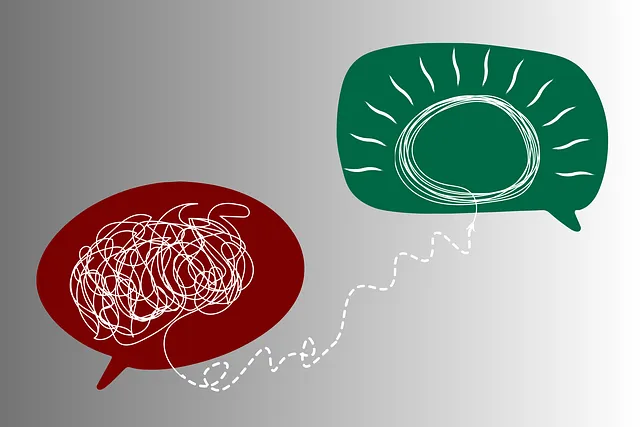Kaiser Permanente, Westminster, offers specialized mental wellness group facilitation through holistic care programs, empowering patients with self-care practices and stress management techniques. Their advanced group therapy sessions, utilizing active listening and creative activities, create safe spaces for experience sharing and empathy building, enhancing mental resilience. These services, incorporating both psychological and physical treatment, demonstrate Kaiser Permanente's commitment to comprehensive mental health support in the community.
Mental wellness group facilitation plays a pivotal role in enhancing collective well-being. This article explores effective techniques, benefits, and challenges within this therapeutic setting, with a specific focus on Kaiser Permanente’s approach in Westminster.
Discover how structured programs can foster supportive environments, mirroring the comprehensive mental health services that Kaiser Permanente offers in Westminster. Uncover proven strategies for facilitators to encourage participation, promote healing, and build resilient communities.
- Understanding Mental Wellness Group Facilitation
- Kaiser Permanente's Approach to Mental Health Services in Westminster
- Effective Techniques for Group Facilitators
- Benefits and Challenges of Group Therapy Sessions
Understanding Mental Wellness Group Facilitation

Mental wellness group facilitation is a specialized skill that plays a pivotal role in supporting individuals navigating mental health challenges. It involves skillfully guiding and facilitating small groups, fostering an environment where members feel safe to share their experiences, build connections, and develop self-care practices. This approach leverages the power of collective support, peer-to-peer learning, and group dynamics to enhance mental wellness.
At Kaiser Permanente, Westminster, understanding the significance of holistic care, they offer various Mental Health Education Programs and Development initiatives, including group facilitation techniques that empower individuals to take charge of their mental well-being. Their Self-Care Practices focus on empowering patients with tools and resources to manage stress, improve resilience, and cultivate healthy coping mechanisms. By integrating these programs, Kaiser Permanente ensures comprehensive support for their patients, reflecting a commitment to improving mental health outcomes in the community.
Kaiser Permanente's Approach to Mental Health Services in Westminster

Kaiser Permanente, a renowned healthcare organization, offers comprehensive mental health services in Westminster, catering to diverse needs. Their approach emphasizes holistic well-being, integrating psychological support with physical care. The mental wellness program focuses on resilience building and empowering individuals to take charge of their mental health using evidence-based practices and mind over matter principles.
Through group facilitation techniques, Kaiser Permanente creates a supportive environment where individuals can connect, share experiences, and learn coping strategies. These sessions encourage open dialogue, foster understanding, and promote a sense of community among participants, all while enhancing mental wellness and resilience in the Westminster community.
Effective Techniques for Group Facilitators

Group facilitation plays a pivotal role in enhancing mental wellness, especially when guided by effective techniques. Facilitators at Kaiser Permanente Westminster, known for their Mental Health Awareness initiatives, employ diverse strategies to create a safe and supportive environment. One such technique is active listening, where facilitators pay close attention to each participant’s perspective, fostering open dialogue and empathy. This approach encourages individuals to share their experiences and insights, creating a sense of belonging.
Additionally, incorporating creative elements like Mental Wellness Podcast Series Production or even simple journaling exercises can significantly impact the group’s engagement. These activities not only promote self-reflection but also provide an outlet for emotions. For instance, Mental Wellness Journaling Exercise Guidance might involve prompts related to gratitude, mindfulness, or setting personal goals. Such techniques contribute to the overall success of mental wellness programs offered by Kaiser Permanente Westminster, ensuring participants gain valuable tools for managing their mental health and well-being.
Benefits and Challenges of Group Therapy Sessions

Group therapy sessions offer a unique and powerful environment for individuals seeking mental wellness support. One of the key benefits is the sense of community it fosters, where members can connect with peers facing similar challenges, reducing feelings of isolation. This peer-to-peer interaction encourages empathy building strategies, as individuals learn from one another’s experiences, fostering understanding and compassionate support. Additionally, group therapy provides a safe space for open communication, allowing participants to express their thoughts and emotions in a non-judgmental atmosphere. This can significantly enhance self-awareness and promote personal growth.
However, facilitating effective group therapy also presents challenges. Facilitators must create a structured yet flexible environment, balancing group dynamics while ensuring every member feels heard. Managing confidentiality and maintaining boundaries is crucial, especially when discussing sensitive topics like stress reduction methods or even risk assessment for mental health professionals. Kaiser Permanente’s offerings in Westminster, known for their comprehensive mental health services, often incorporate group therapy as a valuable tool, providing a supportive network for individuals on their path to improved mental wellness.
Mental wellness group facilitation plays a pivotal role in enhancing collective mental health, as demonstrated by innovative approaches like those employed by Kaiser Permanente in Westminster. By utilizing effective techniques, facilitators can create supportive environments that foster open communication and personal growth. While group therapy sessions offer numerous benefits, understanding the challenges ensures facilitators can navigate complex dynamics, ultimately providing impactful support for participants’ well-being. Moreover, exploring unique facilitation methods enriches the mental health service landscape, such as Kaiser Permanente’s dedicated services in Westminster, ensuring communities have access to comprehensive care.






